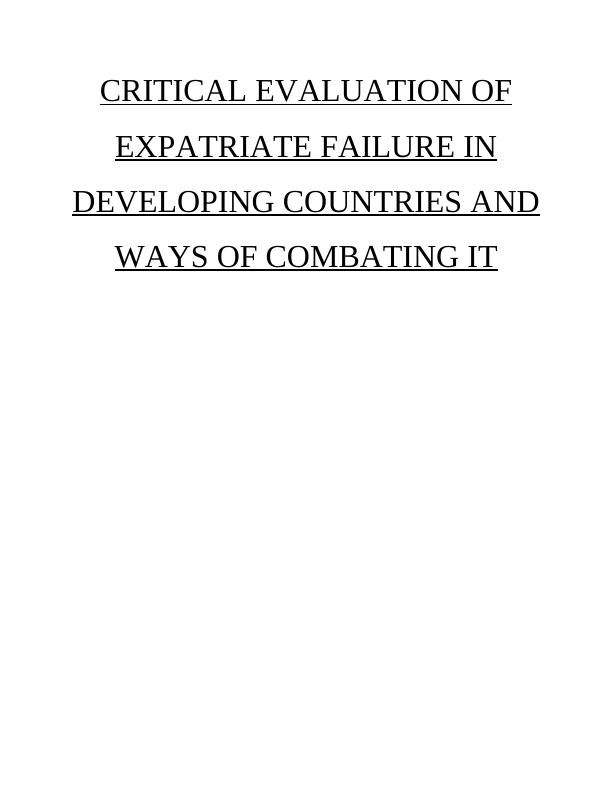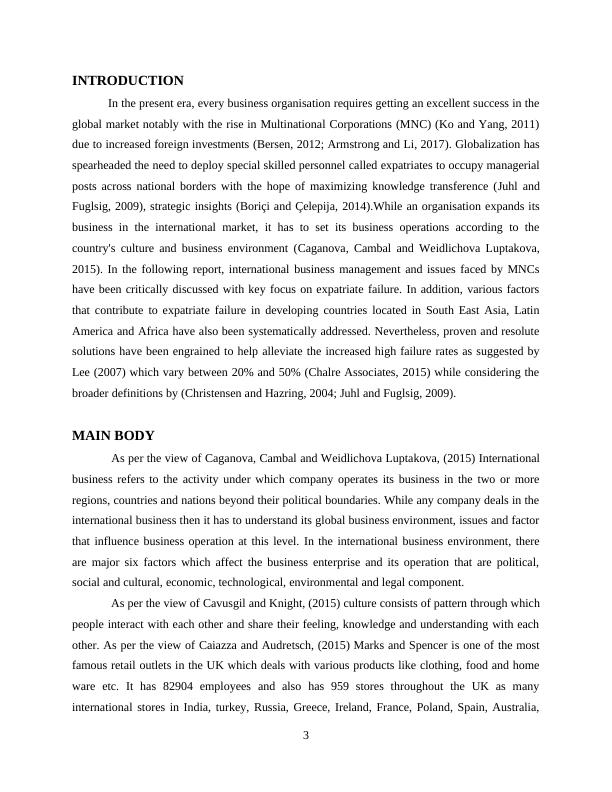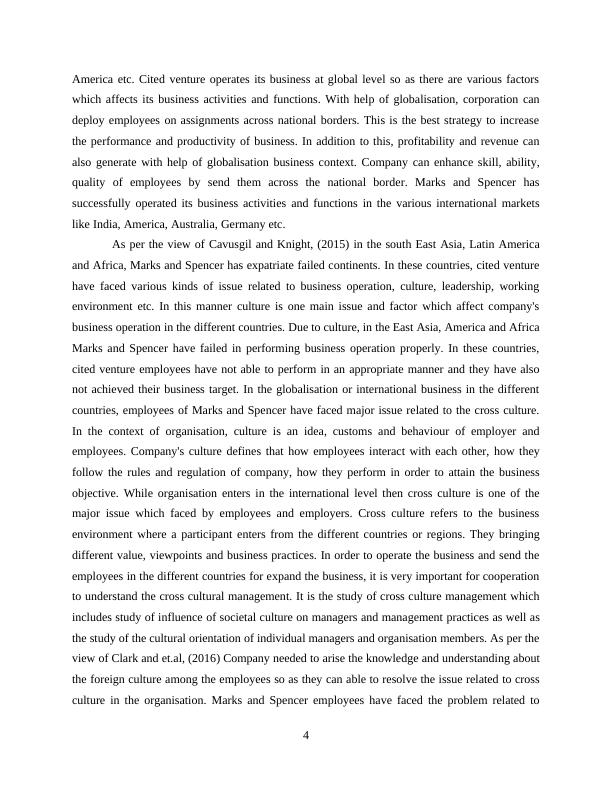EXPATRIATE FAILURE IN DEVELOPING COUNTRIES AND WAYS OF COMBATING IT
13 Pages4223 Words164 Views
Added on 2020-07-22
About This Document
CRITICAL EVALUATION OF EXPATRIATE FAILURE IN DEVELOPING COUNTRIES AND WAYS OF COMBATING IT INTRODUCTION 3 MAIN BODY4 CONCLUSION 12 REFERENCES 14 WAYS OF COMBATING IT INTRODUCTION In the present era, every business organisation requires getting an excellent success in the global market notably withtherisein Multinational Corporations (MNC) (Ko and Yang, 2011) due to increased foreign investments (Bersen, 2012; Armstrong and Li, 2017).
EXPATRIATE FAILURE IN DEVELOPING COUNTRIES AND WAYS OF COMBATING IT
Added on 2020-07-22
ShareRelated Documents
End of preview
Want to access all the pages? Upload your documents or become a member.
Global Business INTRODUCTION
|13
|3168
|131
International Business Environmental
|14
|4513
|335
Factors Related to Expatriate Failure and Globalized Economy
|10
|2555
|39
Global Mobility Policies for International Assignees
|12
|3280
|67
Why Expatriation is Widely Used in a Globalised Economy
|8
|2614
|484
Why Expatriation is Widely Used in a Globalized Economy
|9
|2683
|378




